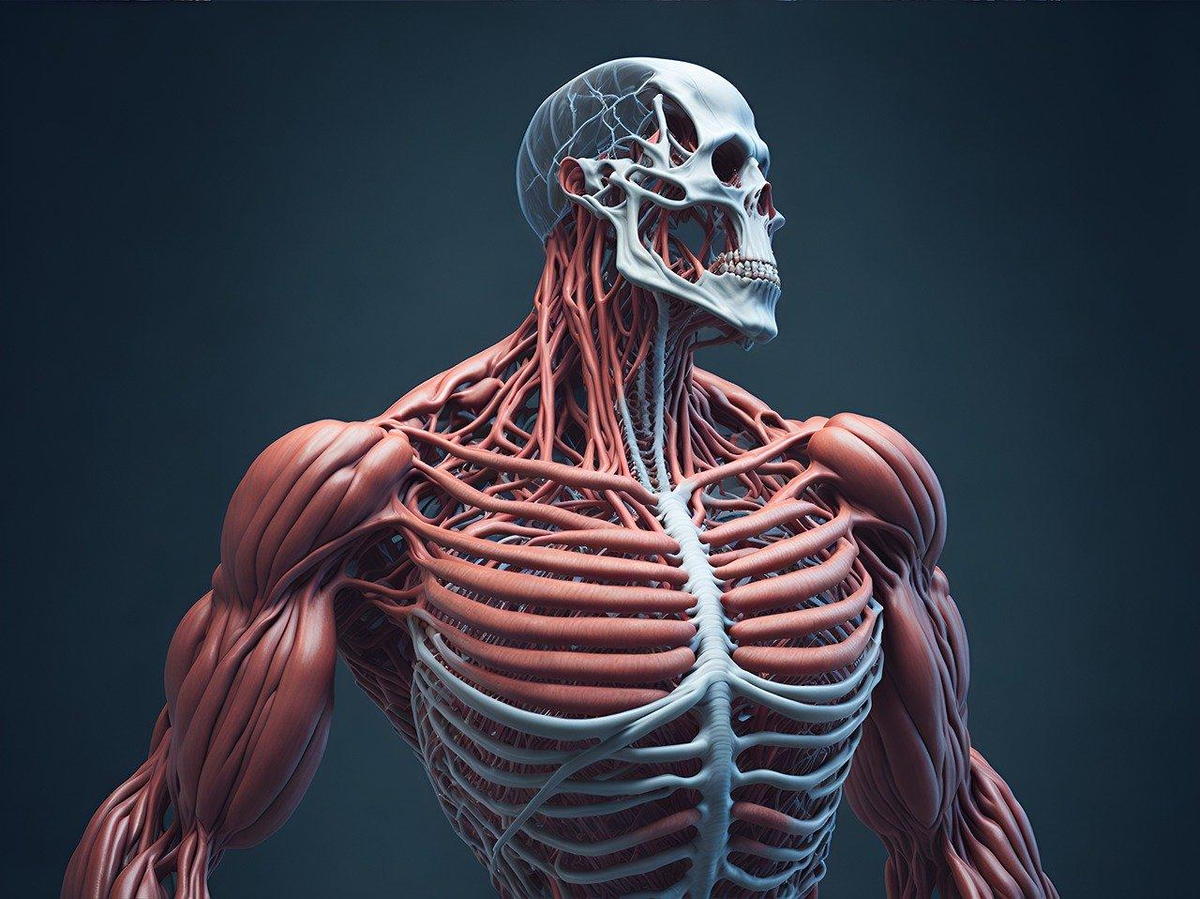The significance of muscles in our health

- posted: Jun. 10, 2024
Our muscles are crucial for maintaining our posture, moving, or performing our daily activities, but they are also involved in numerous metabolic processes in our body, and there are several diseases associated with shallow muscle mass. Many scientific studies emphasize the importance of muscles in our health, which is one reason why muscle mass is beginning to be regarded as another vital sign, like blood glucose, blood pressure, and heart rate. A strong body, a healthy body!
Muscles are structures or tissues in humans that can generate movement by contracting and relaxing. The tissue that forms muscles is called muscle tissue and is made up of specialized cells called myocytes. These cells can increase or decrease their length when stimulated by electrical impulses from the nervous system
 .There are three types of muscle tissue:
.There are three types of muscle tissue:
- Striated muscle tissue that forms voluntary or skeletal muscles
- Cardiac muscle tissue that forms the heart
- Smooth muscle tissue that is involuntary and is found mainly in the walls of the digestive system, bronchi, blood vessels, bladder, and uterus.
In the human body, striated muscles are attached to the skeleton by tendons and are responsible for the execution of voluntary body movements. Cardiac muscle and smooth muscle contract automatically due to impulses they receive through the autonomic nervous system. The functional and structural unit of skeletal muscle is the muscle fiber or myocyte. Several muscle fibers are grouped together to form a fascicle, several fascicles come together to form the complete muscle, which is covered by a connective tissue membrane called fascia. The human body contains approximately 650 skeletal muscles.
What diseases are associated with a lack of muscle?
A lack of muscle mass is directly or indirectly linked to lower overall survival and a greater likelihood of experiencing certain metabolic and cardiovascular diseases, such as:
- Increased risk of osteoporosis
- Increased risk of diabetes
- Increased risk of obesity
- Increased risk of falls and fractures
- Increased risk of cardiovascular diseases
- Increased risk of postoperative complications and prolonged hospital stays
- Increased incidence of lung diseases such as COPD
What can we do to prevent it?
Regular exercise can significantly reduce the risks of losing muscle mass and, consequently, mitigate excess weight, metabolic complications, and associated diseases mentioned earlier. The scientific community widely acknowledges the powerful effects of exercise in preventing and treating metabolic diseases, often proving to be more beneficial than some medications.
An extreme change is not necessary; exercising 30-60 minutes a week can be sufficient to improve muscle mass and gain strength. Staying strong and healthy through muscle-strengthening activities focused on health is the primary benefit you can achieve.
Dr. Eric - Your Santa Monica Chiropractor
REFERENCES:
International Journal of General Medicine, 12 Jun, 2020.
Muscular benefits of exercise, Volume 4, 2012.
Office Hours
Our Regular Schedule
8:00 am - 5:00 pm
8:00 am - 5:00 pm
8:00 am - 5:00 pm
8:00 am - 5:00 pm
8:00 am - 4:00 pm
9:00 am - 12:00 pm
Closed
Location
Find us on the map
Bay Chiropractic & Rehabilitation
1212 5th St Suite 300
Santa Monica, CA 90401

